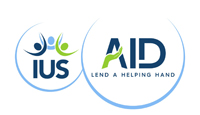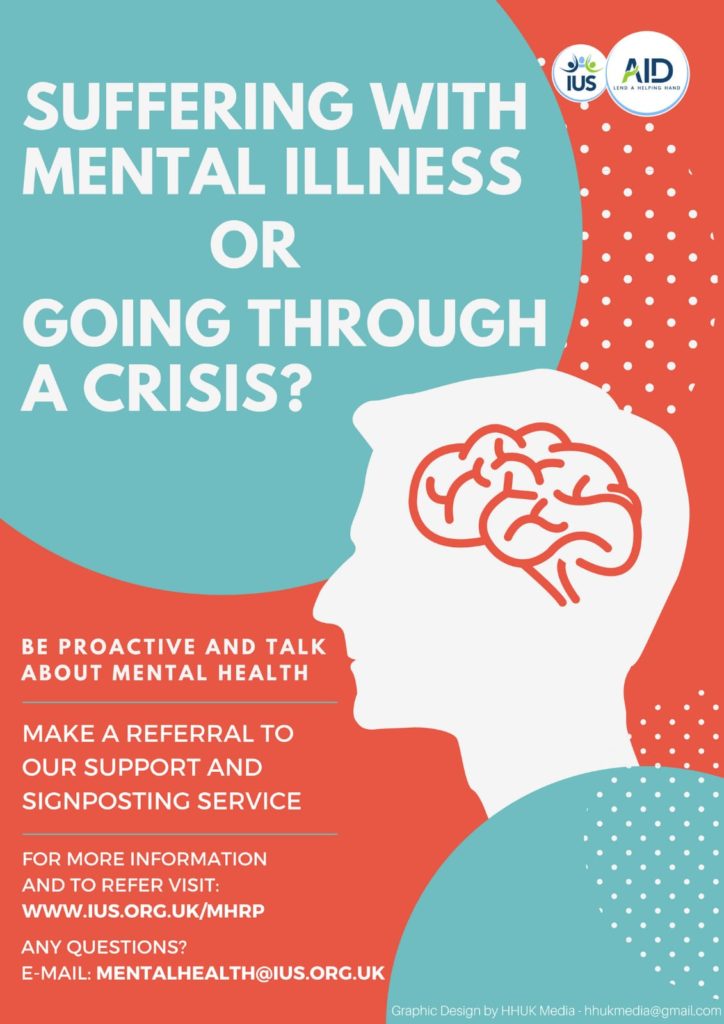Mental Health Programme
We all from time to time go through difficult periods in our life. We may be struggling due to individual, family, social or work circumstances. It is very important that at these times we have an opportunity to talk to someone we can trust and who can provide support and guidance where needed. Family and friends can help, but there are times when you need to talk with someone who is not close to your situation, someone who is qualified to help you work through your difficulties.
Through The Mental Health Referral Programme (MHRP), we aim to provide professional support and guidance as well as sign-posting for appropriate therapeutic interventions. We have a simple referral process for those in need of help . Our aim is to promote good mental health and to offer help at the earliest opportunity to our community.
MHRP also aims to promote mental health awareness and prevention in our community through literature, education, workshops and conferences.
Examples of common issues we cover:
Depression, Anxiety, Obsessions, Low Self-Esteem and confidence, Psychological Trauma, Abuse (emotional and physical), Addiction, Eating Disorders, Substance Abuse, Marital Difficulties, Self-Identity, Domestic Violence, Family Discord, Family Expectations, Forced Marriage, Phobias, Panic Attacks, Bereavement, Major Life Stressors, Personality Difficulties etc
Examples of Issues we do not cover:
We cannot see patients that need urgent help (we screen our referrals on a monthly basis). We do not see patients who have active plans of suicide and/or harm to others. We cannot offer help to those who have acute psychosis or dementia. We do not speak or see anyone who is unable to give consent and/or lacks capacity. For these problems please contact NHS services urgently as described below.
We are here to listen:
We are not here to judge.
We are not here to tell you what to do
Talking can:
Help you find balance
Help bring understanding
Help you find a way through
Your information is confidential and will not be shared to third parties without your consent.
Urgent Referrals
If you feel at risk of harm to yourself or others, please contact your GP Surgery and ask for an urgent appointment to see the doctor. If this is not possible, call the NHS 111 service by dialling 111 on your phone as they may be able to arrange an out of hours appointment if required. You may also visit your local Accident and Emergency Service.
The following helpline numbers offer confidential, emotional support:
- Samaritans 116 123– open 24/7
- Muslim Youth Helpline – 0808 808 2008 – 4pm – 10pm
- Young Minds on 0808 802 5544 – if you are a parent concerned about the wellbeing of a child, you can call .
- Childline 0800 1111 – for children and young people under 19, the number won’t show up on your phone bill
If you feel that you are in immediate danger please telephone 999.
الإمامُ الصّادقُ (عَلَيهِ الّسَلامُ): إنّ المَشورَةَ لا تكونُ إلّا بِحُدُودِها الأربَعةِ … فأوَّلُها أن يكونَ الذي تُشاوِرُهُ عاقِلاً ، والثانيةُ أن يَكونَ حُرّاً مُتَدَيِّناً، والثالثةُ أن يكونَ صَديقاً مُواخِياً، والرابعةُ أن تُطلِعَه على سِرِّكَ فَيكونَ عِلمُهُ بهِ كَعِلمِكَ ثُمّ يُسِرَّ ذلكَ ويَكتُمَهُ
Counsel should only be sought whilst fulfilling its four terms. Firstly that the one whose counsel you seek must be a man of intellect. Secondly that he must be a free and religious man. Thirdly, he must be brotherly and friendly, and fourthly that when you disclose your secret to him whereby he knows as much about it as you do, he would keep your secret and guard it well.
Imām Ja’far ibn Muhammad al-Sādiq (a.s.),
Makarim al- Akhlaq, v. 2, p. 98, no. 2280; Mizan ul Hikmah, page No. 221
Print the poster and use it in your centres
We are pleased to publish our first report from our Mental Health Survey in Muharram 2018:
Please donate to this cause:



